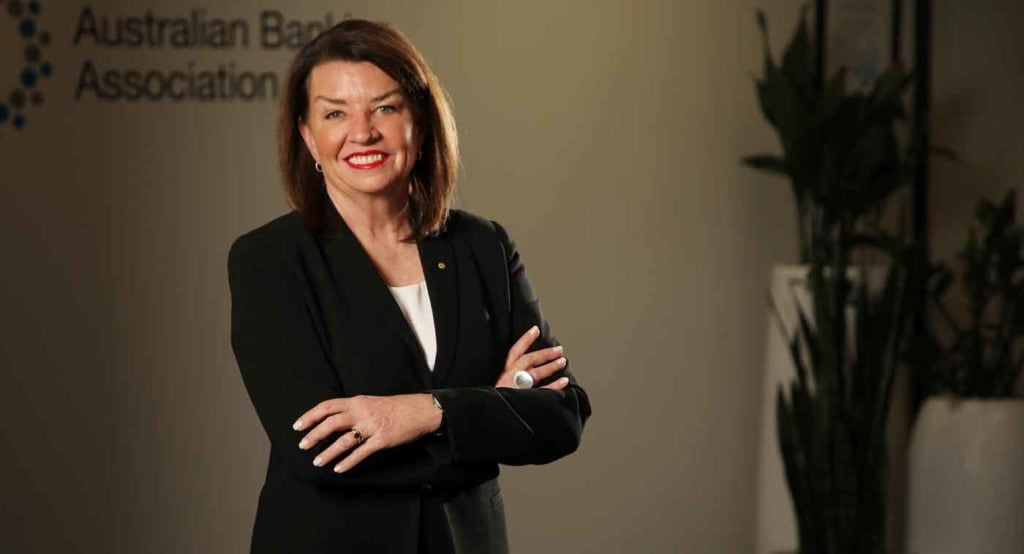Banks have a range of options to help customers impacted by COVID-19
18 November 2020
Interviewed by AM’s Peter Ryan, ABA CEO Anna Bligh talked about the substantial drop in loan deferrals since their peak during the pandemic, falling from 900,000 to 300,000.

SPEAKERS: ABA CEO Anna Bligh, ABC journalist Sabra Lane, ABC Senior Business Correspondent Peter Ryan
Sabra Lane: This morning the Australian Banking Association says there’s been a huge drop in loan holidays, as borrowers resumed their payments, thanks in large part to government programs like JobKeeper. What happens though when those measures are wound back? Peter Ryan is our Senior Business Correspondent and we spoke earlier. Peter, how confident should we be that this is a sign that the economic recovery is underway?
Peter Ryan: Well, good morning, Sabra. This is a significant turnaround that helps avoid what could have been catastrophic consequences for Australia’s economy. The value of loans on deferral has now fallen to $86 billion. That’s down from a peak of more than $250 billion back in June, or 900,000 loans, a massive exposure for Australia’s seven biggest banks at a time when the official jobless rate was hurtling towards more than 10%, meaning that banks rather than households and businesses have absorbed the economic shock. The Australian Banking Association, the peak body for major banks, says the majority of deferred loans are now back on track, combined home loans and business loans are down to just over 280,000 or a 65% reduction since June. The Association’s Chief Executive, the former Queensland Premier, Anna Bligh remains very cautious. But she says emergency measures like JobKeeper have kept people in their jobs and paying off at least something from their loans.
Anna Bligh: I don’t think anybody’s trying to look at this through rose coloured glasses. Banks have said very publicly and very honestly, that for some of their customers 2021 is going to mean facing some pretty tough decisions. If you are facing long term unemployment because of what’s happened in your industry and circumstances involving you and your family, there are going to be circumstances where it is in the best interest of the customer to put their property on the market, realise the equity they have in it and restore themselves to financial well being.
Peter Ryan: But looking back, is it clear that without programs like JobKeeper or other emergency measures that households and businesses would have had to absorb this economic shock rather than the banks.
Value of loan deferrals 29 April – 4 November 2020
Anna Bligh: There’s no doubt that this breathing space for people on their payment deferrals has given them a chance to get back on their feet. But in many cases, that would have been very difficult without government support as well.
Peter Ryan: But looking back, Australia’s been able to avoid what would have been a catastrophic moment for homes and businesses.
Anna Bligh: Australia could have faced quite catastrophic circumstances. But all of those things together help to absorb the shock of this economic damage and meant that that shock didn’t have to all be absorbed 100% by households and businesses, which would have been catastrophic.
Peter Ryan: At the peak, there was a $250 billion exposure to major banks, how much fear was there that perhaps one or more banks would come under intense pressure.
Anna Bligh: It can be difficult to look back even just 10 months and remember the extraordinary uncertainty that everybody faced at the beginning of this pandemic. And yes, banks were very concerned.
Peter Ryan: The unemployment rate was tipped to exceed ten percent, now perhaps eight percent, but that’s still very, very high and that’s a lot of pressure for households and businesses and banks.
Anna Bligh: If we have levels of unemployment up around the seven, eight, nine percent, then that means there are going to be a lot of customers and many of those customers will be people who’ve never missed a housing payment on their home, people who have been very responsible – you know borrowers for a long period of time with a great history of doing the right thing – and if we are facing those sorts of levels of unemployment, some of these customers are going to really struggle.
Sabra Lane: That’s the Australian Banking Association Chief Executive, Anna Bligh.
Latest news
E&OEPodcast InterviewThe Savings Tip Jar18 February 2026. Topics: Mortgage refinancing, savings accounts. Dominic Beattie (Host): Welcome to this week’s Dollar Dialog, and today we’re talking refinancing, with new data dropping from the ABS last week, showing that a record 640,000 Australian mortgages were refinanced through 2025, which is up 20% on the previous year. So,… Read more »
Over 640 000 homeowners refinanced their mortgage last year, according to new data released today by the Australian Bureau of Statistics. New lending indicators data shows 640 137 mortgages were refinanced throughout 2025, a 20 per cent jump from the previous year as more borrowers than ever before renegotiated or switched their home loans. ABA… Read more »
E&OERadio InterviewABC Radio Canberra9 February 2026. Topics: Romance scams; Scam Prevention Framework Emma Bickley (Host): You’re listening to afternoons on ABC Radio Canberra. I’m Emma Bickley, and my guest today is Simon Birmingham. He’s the CEO of the Australian Banking Association, and in the lead up to Valentine’s Day, they’re warning you that romance scams… Read more »
